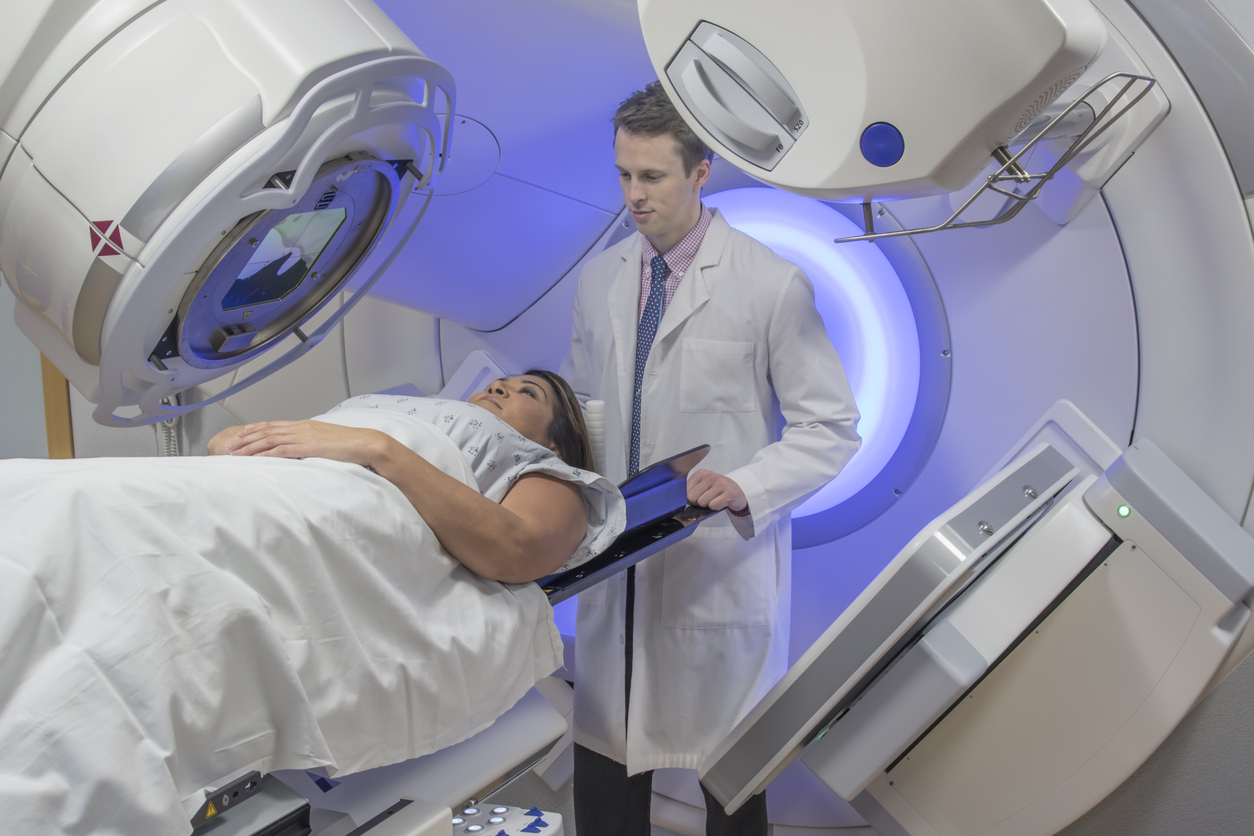Side-effects from radiotherapy to the breast
Skin changes
Short-term skin changes can include breast or nipple soreness, changes to the appearance of the skin (e.g. a change in colour) and peeling, flaking skin in the treated area or on the nipple.
Hyperpigmentation and broken veins
Hyperpigmentation is where the skin on the treated area becomes deeply tanned. A pattern of tiny broken veins called telangiectasia may also be visible on your skin. These changes are usually permanent.
Swelling
Your breast may start to swell a little during your radiotherapy treatment and it may look swollen for a month or two after treatment. This is due to fluid retention (oedema). In rare cases it may last longer.
Hardening or thickening of the breast tissue
This can happen months or years after treatment. If this happens your breast will feel harder and look smaller than before treatment.
Pain in the chest wall / ribcage
You might have brief shooting pains in this area, which are caused by the radiotherapy irritating or causing swelling in the tissues there. Over-the-counter painkillers should ease any pain. But let your medical team know if the pain is bothering you or it carries on for more than a few weeks after treatment.
Restricted arm and shoulder movement
It is normal for women to have restricted arm movement after their surgery and / or radiotherapy. Your surgeon and radiation therapists can give you advice about exercises you should do to manage this and improve your range of movement.
Lymphoedema
If you have radiotherapy to your breast area, you are at risk of developing lymphoedema. This is a swelling caused by a build-up of lymph fluid in your tissues. If you notice swelling anywhere on your arm, hand or breast area, talk to your nurse, doctor or radiation therapist for advice. Ask to be referred to a trained lymphoedema therapist. We have more information on lymphoedema.

Breast feeding after radiotherapy
You will probably find it hard to breastfeed from a breast treated with radiotherapy, as the amount of milk it produces will be reduced.
For more information
Phone
1800 200 700


